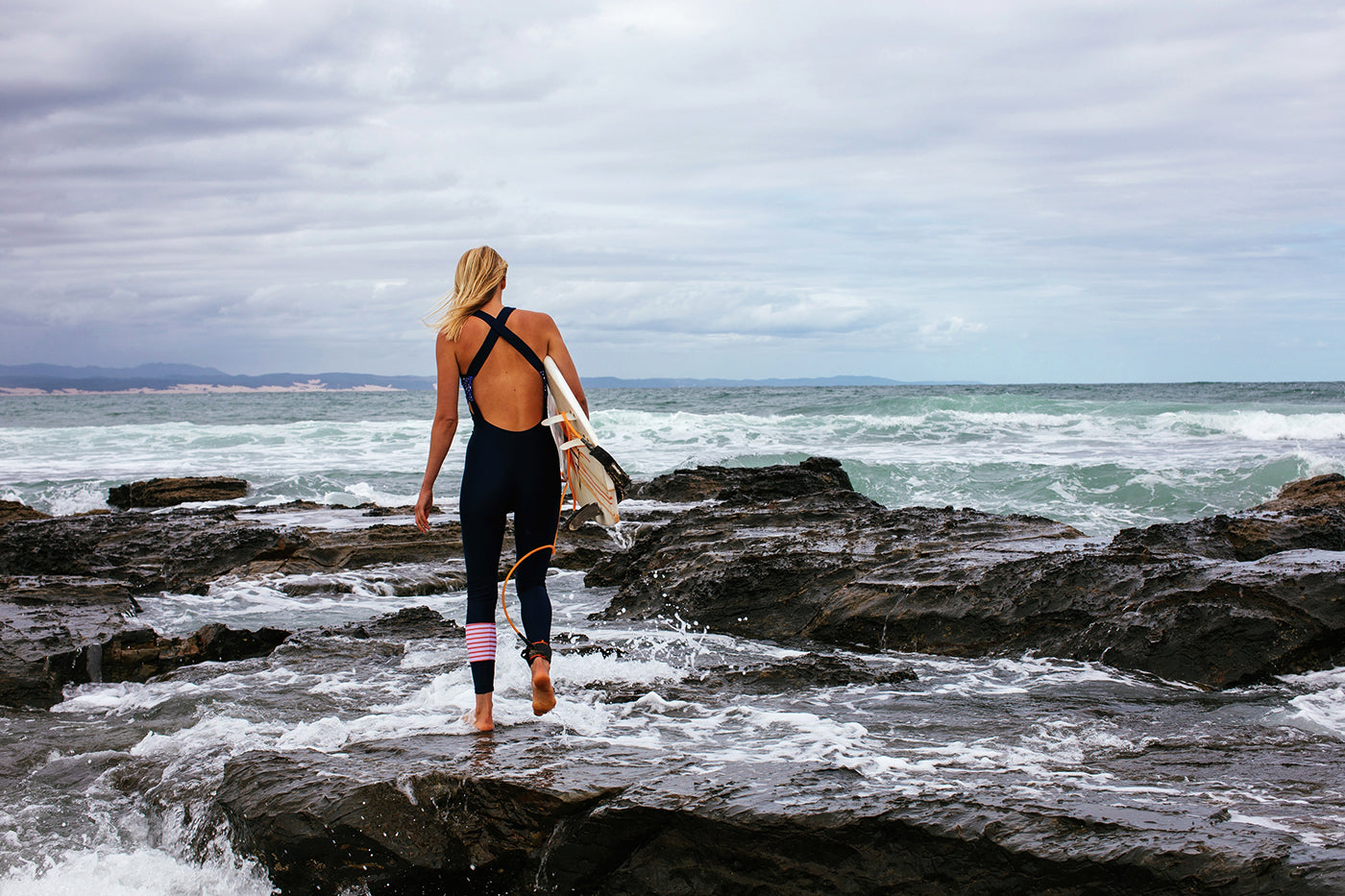
A New Wave of Surfing Sustainability
Known for its pioneering approach to designing sustainable outdoor clothing, Jeffrey Bowman explores the ethos of Finisterre in The New Outsiders
Cornwall-based Finisterre has set out to tackle the plastic choking our oceans—a global phenomenon that they are committed to solving through their innovative approach to outdoor clothing development.
Although the surfer stereotype may conjure up the idea of a laid-back larrikin only concerned with catching the next wave when it comes to microplastics they are spearheading the charge for change. These barely visible fragments, the remnants fishing nets, plastic bags, and bottles, pollute every corner of the world’s oceans, finding their way into the marine ecosystem to devastating effect.
By the year 2050, there could be more plastic in the sea than actual fish
For founder Tom Kay and his kin, the ocean is their playground—a place they want to feel safe and protect for the future. “Our view is that the oceans need our help more than ever,” he says. “We need them. I’d hope that I’m a realistic optimist, which means that I believe humankind can get us out of this mess, and innovation will play a critical role.” The big question is how to remove so much plastic waste from the ocean. While beach clean-ups tackle the surface plastics, the pollution that floats beneath the waves requires a different solution altogether.
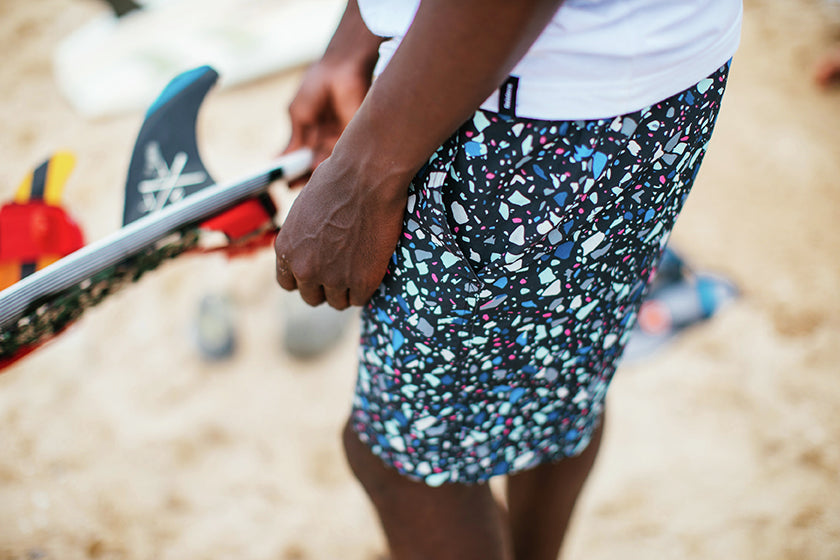
Men’s swimming shorts from Finisterre’s microplastics collection, which features a design resembling the multicolored fragments of microplastics that fill our oceans. (Photo: Finisterre, The New Outsiders)
By the year 2050, there could be more plastic in the sea than actual fish—an alarming revelation. 'Beneath The Surface' is Finisterre’s microplastic collection, featuring a range of swimwear, surf suits, and accessories that resulted from an attempt to shed light on the ocean plastic waste problem while also finding a practical solution to stop the future polluting of the seas. As Kay says, “it’s easy for people to relate to a bit of plastic pollution they can see and maybe even recognize from a consumer point of view. Microplastics are invisible and so much harder for people to understand and gauge the scale of the problem—which is huge.”
The scope of the crisis facing the oceans has brought together a collective of critical voices from throughout the ocean community who seek to find a solution to this vast and poorly understood problem. One such person is conservationist Hanli Prinsloo, whose free-diving career has seen her witness the extent of the issue firsthand. Then there’s scientists and materials specialist Sophie Mather, who specifically researches the microfiber plastics shed from clothing and develops innovative ways to reduce the contribution of the textile industry to this problem, side-by-side with brands and suppliers.
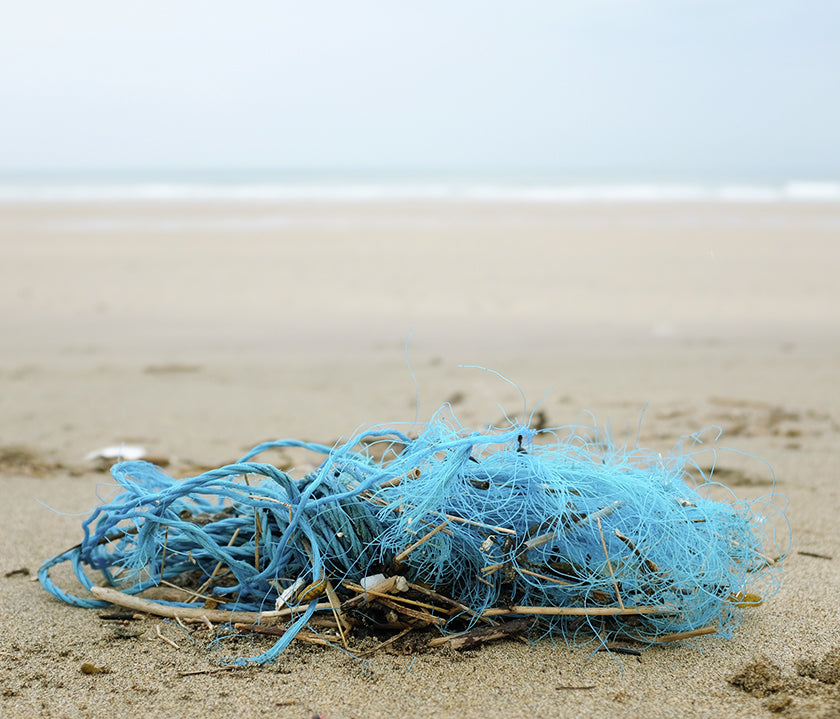
Founded in 2003, Finisterre is known for its pioneering approach to designing sustainable outdoor clothing inspired by the sea. (Photo: Finisterre, The New Outsiders)
Similarly, activist and CEO of Surfers Against Sewage Hugo Tagholm has long been committed to making the seas a cleaner place for surfers. And then there’s Kay himself, who feels transformed every time he enters the sea and is an active voice in all things ocean. It’s through the combination of these diverse perspectives, all of which share the same desire for a safer and healthier ocean, that a solution has been developed and a collection of performance swimwear was born.
It is estimated that more than 640,000 tons of discarded non-biodegradable nylon fishing nets are currently floating around in the world’s oceans. Beneath The Surface focuses further upstream, seeking to find a way to stop any more plastics from reaching the ocean and at the same time reusing larger plastic items such as fishing nets that are removed from the ocean and collected from beaches.
“It’s good that sustainability is now informing the buying decision, as it means that questions are being asked around transparency and honesty”
The collected plastic waste, ranging from office carpets to nylon umbrellas, is cleaned and then re-engineered into a specially developed nylon yarn called ECONYL®. Kay and the Finisterre team then use this yarn in their collection, which is infinitely recyclable, closing the loop on product and production.
The brand’s internal discussion around microplastics also had an impact on their design and creative approach. The particles’ microscopic pattern, visible only under a microscope, became the visual DNA of the collection, finding life as a print used across swim shorts, bikinis, all in ones, socks, and t-shirts. The intention behind this was to create a visual reflection of the invisible issue that microplastics represents.
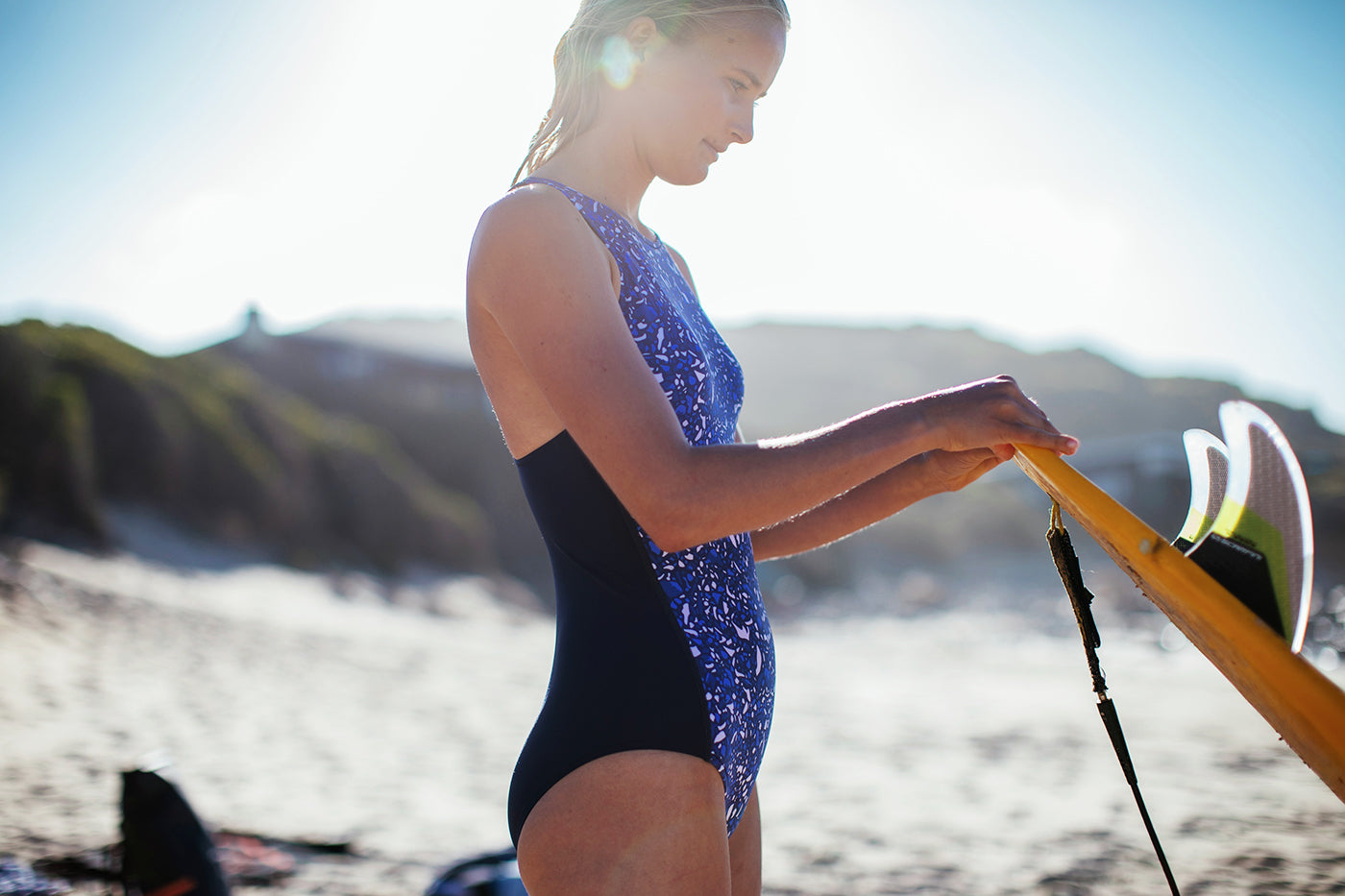
A Finisterre surf suit made from recycled ECONYL® fabric. The company donates 10 percent of its profits from the sale of ECONYL® products to Surfers Against Sewage, an environmental charity protecting the United Kingdom’s waves, oceans, and beaches. (Photo: Finisterre, The New Outsiders)
It is collaborations like the one between Finisterre and ECONYL® that are driving innovative solutions to a rapidly growing problem and help raise awareness among the wider community. “We don’t have anything like all the answers, and so are grateful for our relationship with the surfing community to help us with ideas and solve problems,” says Kay. Ultimately, it is collective action that will make the most decisive change, and projects and products like this are the reason ocean plastic has become more visible on the global agenda. Kay notes that sustainability within the outdoor industry, specifically clothing and apparel, is informing consumers’ buying decisions more than ever, driving the industry. “It’s good that sustainability is now informing the buying decision, as it means that questions are being asked around transparency and honesty, but this cannot be at the expense of performance and functionality.”
Almost 380 tons of neoprene are discarded each year in the United Kingdom alone, which Kay and the Finisterre team are acutely aware of. Kay’s maverick approach to problem-solving means Finisterre is also working on a pioneering wetsuit recycling program. They currently employ the world’s only full-time wetsuit recycler, whose job is to make new wetsuits from old wetsuits, in an attempt to bring circularity into the surf industry.
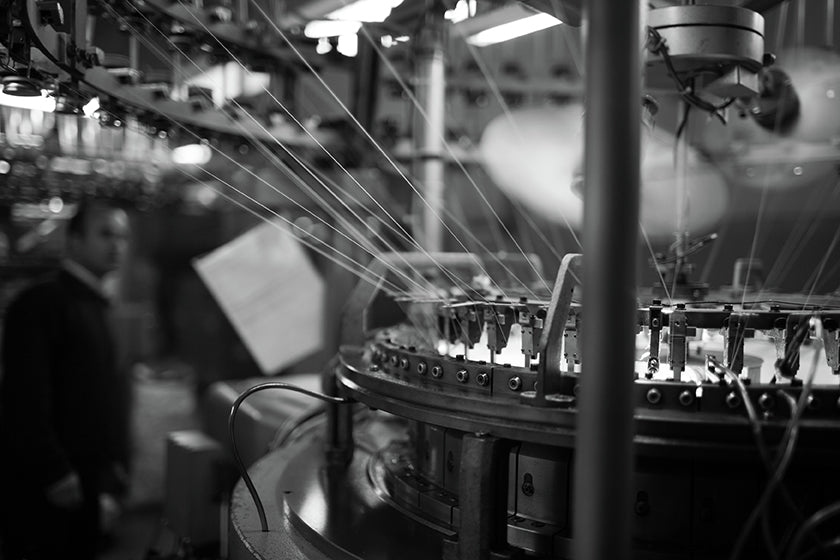
Their recycled swimsuit eliminated both the wetsuit’s outer and inner fabrics, relying solely on standard neoprene rubber to yield a garment that provides a solution to the 380 tonnes of discarded wetsuits sent to landfill each year in the United Kingdom. (Photo: Finisterre, The New Outsiders)
Kay and the entire Finisterre team are led by their singular commitment to clean up the oceans, the place they grew up in, and the place they hope future generations will still be able to enjoy. This influences all their decisions, but they can’t do it alone. Action as a community is vitally important to Kay, and he says that turning to his fellow surfers for help keeps the relationship open and honest. For a global brand like Finisterre, this transparency is key in translating their communication into action and helping turn consumers into activists.
Featured in The New Outsiders, a book that showcases the creatives striving for practices to protect the planet, which is available in German and English.



